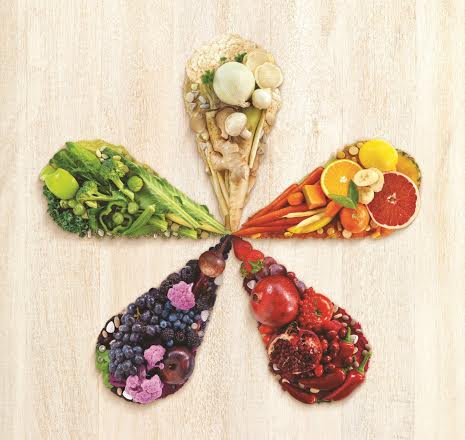
Most adults need to double fruit and vegetable intake: Research
Commissioned by the Nutrilite Health Institute of Amway, the research finds the majority of adults worldwide would have to at least double their current consumption of fruits and vegetables to meet the World Health Organization’s minimum recommendation of five servings (400 grams) per day.
Additionally, the vast majority of adults worldwide – 60 to 87 percent across 13 geographic diet regions – are falling short of this recommendation and missing out on crucial nutrition and health benefits.
The gap between the recommended amount of fruits and vegetables and what adults are actually eating also indicates that most adults worldwide are not receiving the quantity or variety of phytonutrients – organic compounds found in fruits and vegetables – potentially needed to support their health and wellness.
While specific recommendations for phytonutrient consumption levels have not yet been established uniformly worldwide, a growing body of research suggests that eating foods rich in phytonutrients may provide a range of health benefits, from promoting eye, bone and heart health, to supporting immune and brain function. Many phytonutrients are powerful antioxidants that can help fight the damage caused to our bodies’ cells over time.
“Insights from the research highlight a global need for increased awareness of the relationship between fruit and vegetable consumption, and phytonutrient intakes,” said Keith Randolph, Ph.D., nutrition technology strategist at the Nutrilite Health Institute and co-author of the research published in the British Journal of Nutrition.
The Effect of Low Fruit and Vegetable Consumption and Availability on Phytonutrient Intake
The research examined the impact of low fruit and vegetable consumption on phytonutrient intake in each of the 13 regions under study. This examination found adults consuming five or more daily servings of fruits and vegetables had two to six times the average intake of phytonutrients of adults consuming fewer than five servings per day.
Additionally, the research looks at the variety and availability of fruits and vegetables in each of the regions. It shows that phytonutrient intake estimates vary considerably across some regions, a reflection of limited availability of some fruits and vegetables. Key findings include:
European Regions: When compared to other regions, adults in European regions, in particular Northern Europe, likely have high intakes of alpha-carotene and beta-carotene, attributable in part to the relative high availability of carrots. These phytonutrients are known to support healthy growth and development.
Asian Regions: Adults in Asia (A), which includes China and India, likely have relatively low intakes of ellagic acid due to the limited availability of berries. Ellagic acid is shown to be vital to cell health.
South/Central America: Adults in South/Central America likely have relatively low intakes of lutein and zeaxanthin – phytonutrients thought to be crucial to healthy vision – relative to adults in Asia or Northern Europe.
All Regions: Fruiting vegetables (e.g. tomatoes and corn) and tropical and subtropical fruits (e.g. plantains and bananas) are among the most commonly available vegetables and fruits across most regions. Given this, adults worldwide consuming fruits and vegetables will likely receive some level of lycopene, which supports heart health, as well as alpha-carotene, beta-carotene and lutein/zeaxanthin.
"Both the amount and variety of fruits and vegetables in a person’s diet are important," said Mary Murphy, MS, RD, senior managing scientist at Exponent, Inc. and co-author of the study. “In order to consume a range of phytonutrients people should aim to meet recommended intakes of fruits and vegetables and eat an assortment of fruits and vegetables.”
Factors Contributing to Low Phytonutrient Intake
Dr. Randolph acknowledges that busy lives, cost, seasonal and geographic availability, as well as perceptions of the value of fruits and vegetables as a food source, could all influence people’s consumption of fruits and vegetables, and ultimately phytonutrients.
“No matter where they live, many adults today lead busy and active lives and/or may have limited access to some fruits and vegetables,” said Randolph. “That’s why it’s important for adults to eat whole foods, including fruits and vegetables, whenever possible. But when availability is limited or diet is not enough, dietary supplementation may be an option for individuals looking to increase their phytonutrient consumption,” added Randolph.
Support Our Journalism
We cannot do without you.. your contribution supports unbiased journalism
IBNS is not driven by any ism- not wokeism, not racism, not skewed secularism, not hyper right-wing or left liberal ideals, nor by any hardline religious beliefs or hyper nationalism. We want to serve you good old objective news, as they are. We do not judge or preach. We let people decide for themselves. We only try to present factual and well-sourced news.







